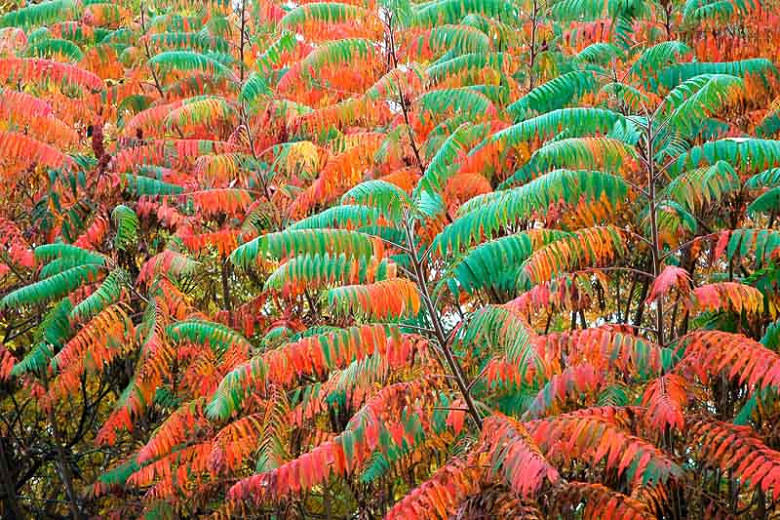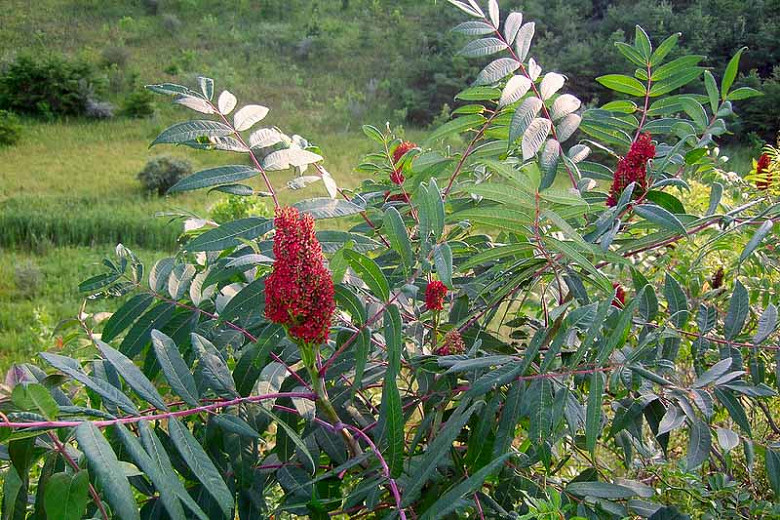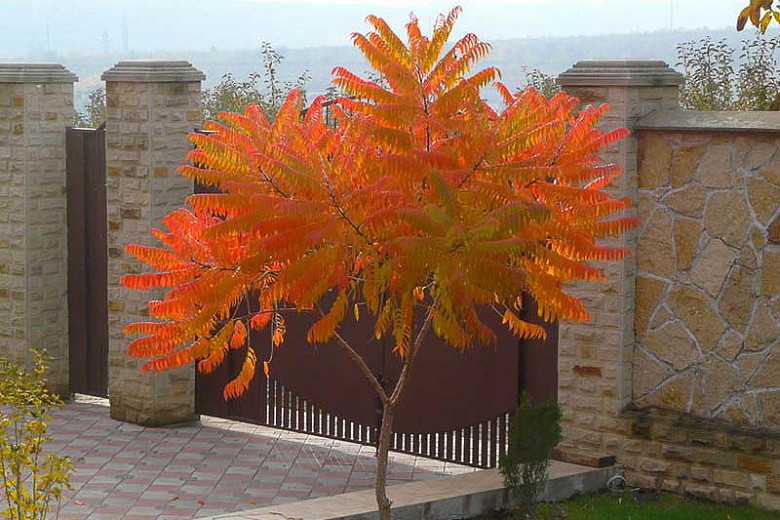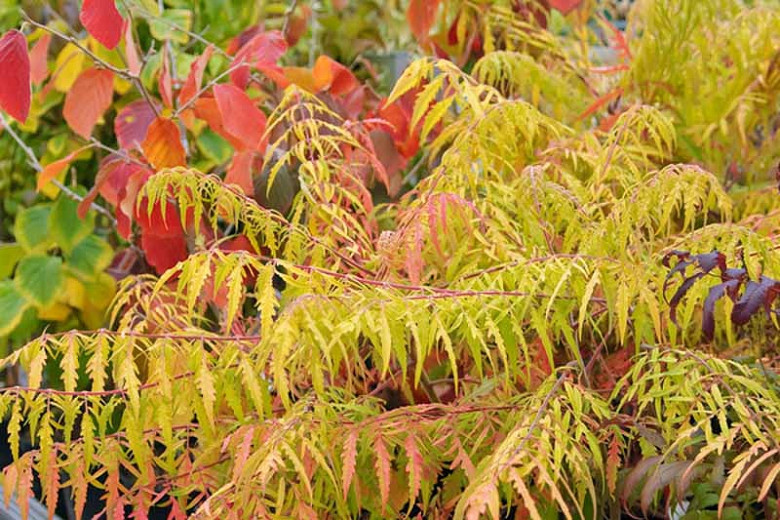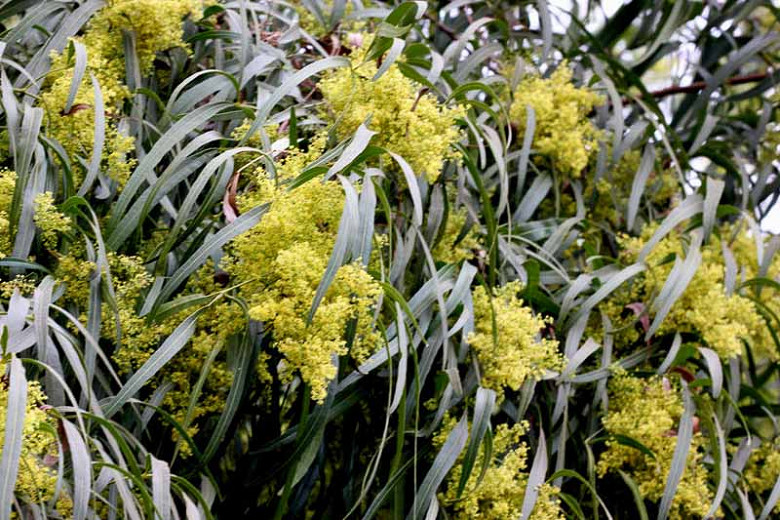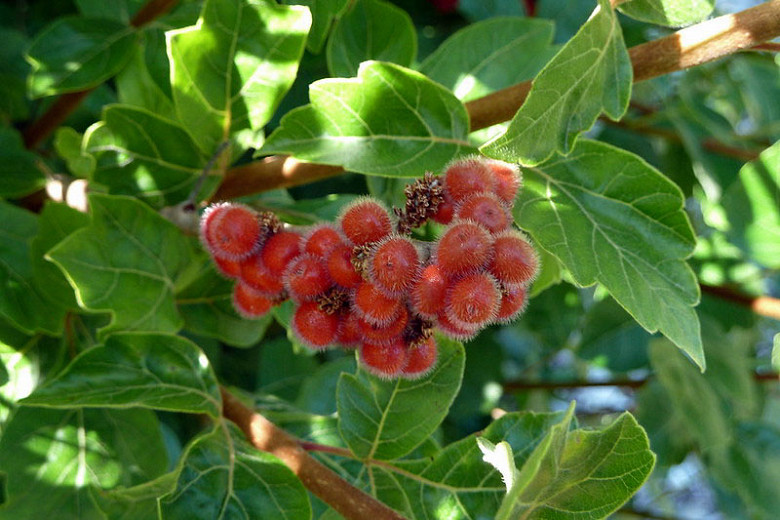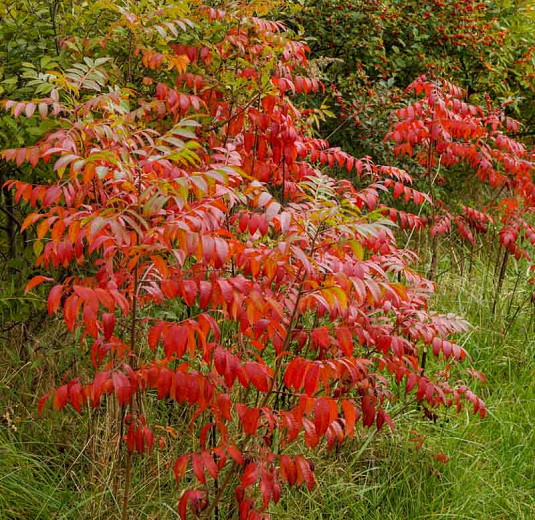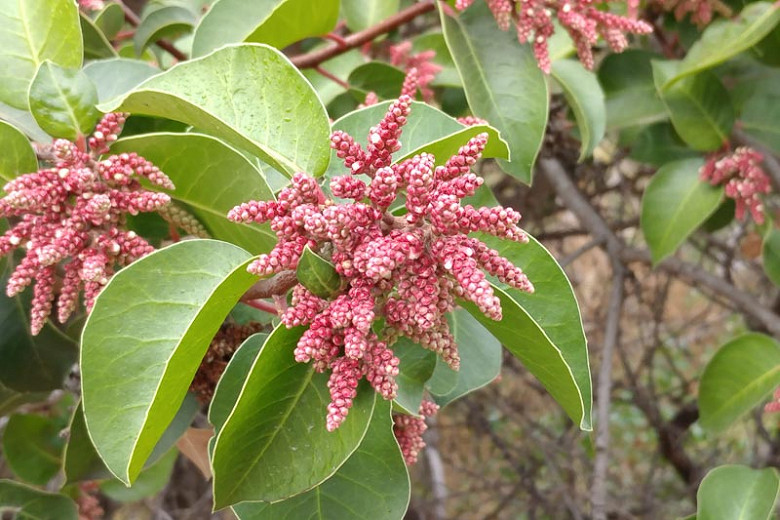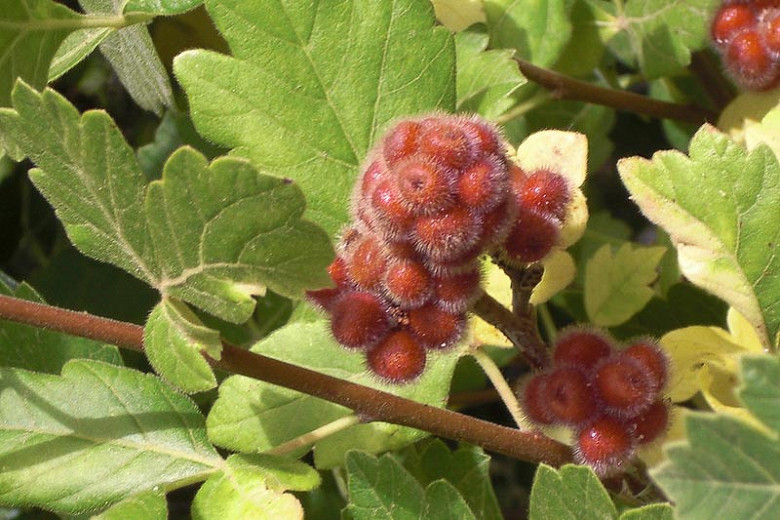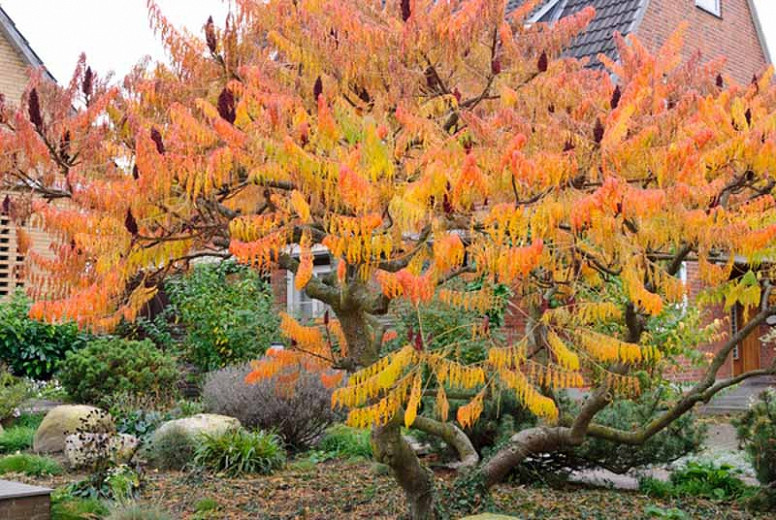Rhus glabra (Smooth Sumac)
Flamboyant in autumn, Rhus glabra (Smooth Sumac) is an open, spreading, deciduous shrub with nice ornamental features. Its foliage of shiny, deeply dissected, fern-like, deep green leaves, 18 in. long (45 cm), turns brilliant shades of red and orange in fall. Its strong architectural form and elegant silhouette are revealed in winter after the leaves are gone. Cone-shaped panicles of green-yellow flowers bloom in late spring and summer, followed on female plants by conspicuous conical fruiting clusters, 8 in. long (20 cm), in fall. Attractive to wildlife, they gradually turn dark red as they persist through much of the winter. Native to most of the United States and parts of Canada, Rhus glabra is a suckering shrub that will form thickets over time and has the potential to become a nuisance. Great for naturalizing, on difficult slopes and banks.
- Grows up to 9-15 ft. tall and wide (270-450 cm). Spreads by root suckers to form thickets over time.
- A full sun or part shade lover, this plant is easily grown in average, dry to medium moisture, well-drained soils. Fall color will be best in full sun. Tolerates a wide range of soils provided they enjoy good drainage. Remove suckers by digging out all roots.
- Perfect for landscape areas with poor soils or for naturalizing in wild areas. Too aggressive for shrub borders. Great for slope stabilization (erosion control).
- Drought and dry soil tolerant, it is also rabbit resistant.
- No serious insect or disease problems. Keep an eye out for leaf spot, rust, scale, aphids and mites.
- Native from the northeastern United States to southern Canada.
Requirements
| Hardiness | 3 – 9 |
|---|---|
| Heat Zones | 1 – 8 |
| Climate Zones | 1, 1A, 1B, 2, 2A, 2B, 3, 3A, 3B, 4, 5, 6, 7, 8, 9, 10, 14, 15, 16, 17 |
| Plant Type | Shrubs |
| Plant Family | Rhus – Sumacs |
| Exposure | Full Sun, Partial Sun |
| Season of Interest | Spring (Late)Summer (Early,Mid,Late)Fall |
| Height | 9' – 15' (270cm – 4.5m) |
| Spread | 9' – 15' (270cm – 4.5m) |
| Water Needs | Low, Average |
| Maintenance | Low |
| Soil Type | Chalk, Clay, Loam, Sand |
| Soil pH | Acid, Alkaline, Neutral |
| Soil Drainage | Well-Drained |
| Characteristics | Showy, Fruit & Berries |
| Native Plants | United States, Alaska, California, Midwest, Illinois, Indiana, Iowa, Kansas, Michigan, Minnesota, Missouri, Nebraska, North Dakota, Ohio, South Dakota, Wisconsin, Northeast, Connecticut, Delaware, Maine, Massachusetts, Maryland, New Hampshire, New Jersey, New York, Pennsylvania, Rhode Island, Vermont, Pacific Northwest, Idaho, Oregon, Washington, Rocky Mountains, Colorado, Montana, Utah, Wyoming, Southeast, Alabama, Arkansas, Florida, Georgia, Kentucky, Louisiana, Mississippi, North Carolina, South Carolina, Tennessee, Virginia, West Virginia, Southwest, Nevada, Arizona, New Mexico, Oklahoma, Texas |
| Tolerance | Drought, Rabbit, Dry Soil, Rocky Soil |
| Attracts | Birds, Butterflies |
| Garden Uses | Banks and Slopes |
| Garden Styles | Informal and Cottage, Prairie and Meadow |
